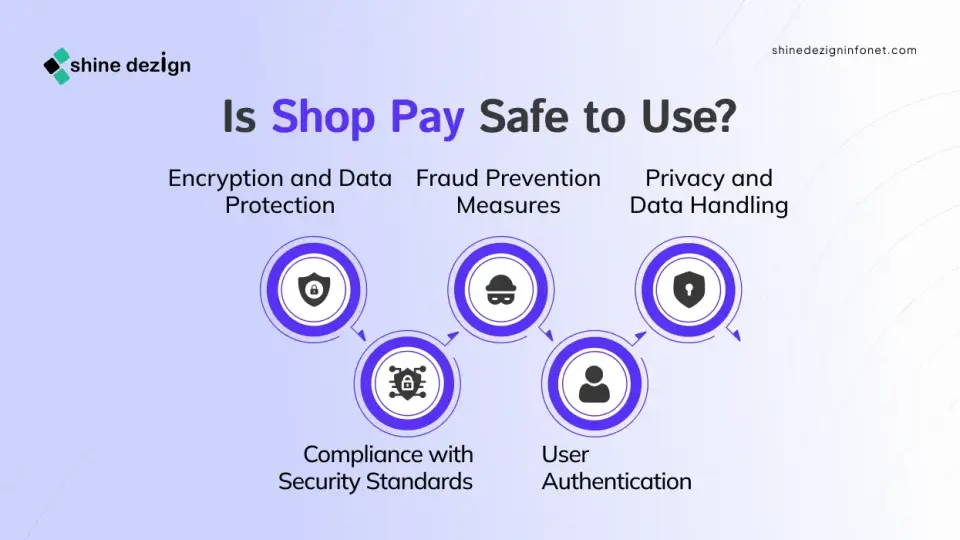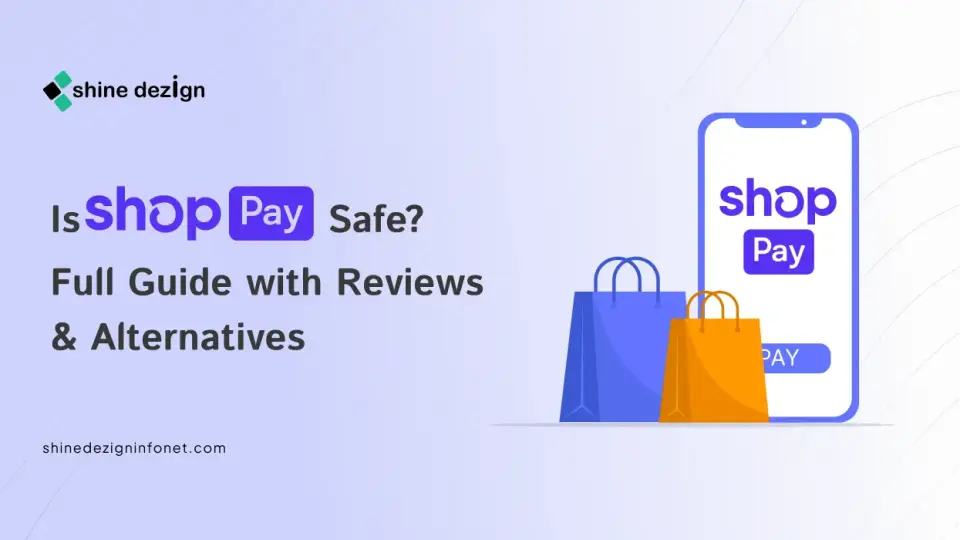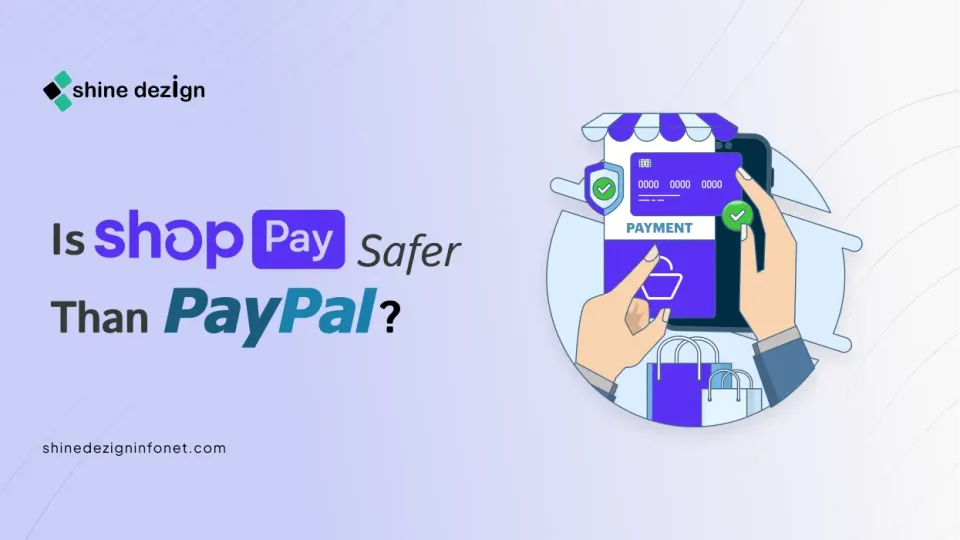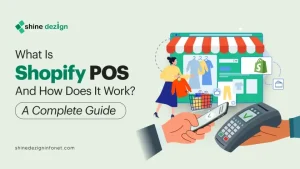Table of Contents
- Introduction
- What is Shop Pay and How Does It Work?
- Is Shop Pay Safe to Use?
- How Safe is Shop Pay Installments?
- Is Shop Pay Safer Than PayPal?
- What are the Key Features of Shop Pay?
- What are the Pros and Cons of Using Shop Pay?
- When to Choose Shop Pay?
- When to Consider Alternatives?
- Alternatives to Shop Pay
- Comparison Table of Shop Pay Alternatives
- Final Verdict
Is Shop Pay safe to use in 2026? Many shoppers rely on it because it offers a fast and secure way to pay on Shopify stores. Shop Pay saves your payment and shipping details, so you can check out quickly without re-entering information. It also includes features like order tracking and interest-free installments. In this guide, we look at how safe Shop Pay really is, what users say, and the best alternatives you can consider.
What is Shop Pay and How Does It Work?
Shop Pay is a secure and fast checkout option for Shopify stores. It lets customers save payment and shipping details to make future purchases quicker. Along with faster checkout, it also offers order tracking and carbon offset features.
Using Shop Pay at Checkout
At checkout, shoppers can choose Shop Pay. First-time users enter and save their details, while returning users enjoy one-click checkout with saved info. Shop Pay also sends order updates and tracking through the Shop app or website.
Is Shop Pay Safe to Use?
 If you’re asking how safe is Shop Pay? here’s what you need to know. Shop Pay prioritizes the security and privacy of its users by implementing comprehensive data protection measures and transparent privacy practices. Below is an overview of how Shop Pay handles your data and ensures a safe shopping experience, based on Shopify’s privacy policies and terms of service.
If you’re asking how safe is Shop Pay? here’s what you need to know. Shop Pay prioritizes the security and privacy of its users by implementing comprehensive data protection measures and transparent privacy practices. Below is an overview of how Shop Pay handles your data and ensures a safe shopping experience, based on Shopify’s privacy policies and terms of service.
Encryption and Data Protection
Shop Pay uses industry-standard encryption technologies to protect your personal and payment information during transmission and storage. This includes SSL/TLS encryption, which safeguards data as it travels between your device and Shopify’s servers, preventing unauthorized interception.
Shopify also complies with the Payment Card Industry Data Security Standard (PCI DSS), ensuring that all payment card data is handled securely according to rigorous industry requirements. This compliance helps protect your credit card information from theft or misuse.
Fraud Prevention Measures
Shop Pay incorporates advanced fraud detection systems that continuously monitor transactions for suspicious or unusual activity. These systems use machine learning and behavioural analytics to identify potential fraud attempts in real-time.
If suspicious activity is detected, Shop Pay may require additional verification steps or restrict transactions to protect your account and prevent unauthorized purchases. Shopify’s security team actively investigates and responds to threats to maintain a safe environment for users and merchants alike.
Privacy and Data Handling
Shop Pay collects and processes personal data only as necessary to provide and improve its services. The types of personal data collected include:
- Profile and Contact Information: Name, shipping address, email, and other account details.
- Device Information: IP address, device identifiers, browser type, and network information.
- Payment Information: Credit card numbers and expiration dates are collected when you make purchases.
- Shopping Activity: Order history, products viewed or purchased, and interactions with Shopify merchants.
- Settings and Preferences: Privacy settings and communication preferences.
Shopify uses this data to:
- Provide and customize your shopping experience.
- Authenticate your account and secure transactions.
- Communicate with you about orders, updates, and support.
- Detect and prevent fraud and abuse.
- Comply with legal obligations.
Shopify does not sell your personal data to third parties. Data sharing is limited to trusted service providers, payment processors, and legal authorities when required. You have control over your data and can update or delete your information through your Shop Pay account or by contacting Shopify.
Compliance with Security Standards
Shop Pay operates under strict compliance with global data protection laws and security standards, including:
- PCI DSS: Ensures secure handling of payment card data.
- GDPR (General Data Protection Regulation): Protects European users’ privacy rights.
- CCPA (California Consumer Privacy Act): Provides privacy rights for California residents.
- Regular Security Audits: Shopify conducts ongoing assessments and penetration testing to identify and fix vulnerabilities.
These measures ensure that Shop Pay maintains a high level of security and respects user privacy worldwide.
User Authentication
To protect your account and prevent unauthorized access, Shop Pay requires user authentication during checkout and account management. This includes:
- Secure Passwords: Users must create strong passwords for their Shop Pay accounts.
- Multi-Factor Authentication (MFA): Additional verification steps, such as SMS or email codes, may be required.
- Biometric Authentication: On supported devices, fingerprint or facial recognition can be used to verify identity.
These authentication methods add extra layers of security, making it difficult for attackers to misuse your saved Shopify payment information.
How Safe is Shop Pay Installments?
Many users ask, Is Shop Pay Installments safe? Here’s a breakdown:
Understanding Shop Pay Installments: Shop Pay Installments lets you split purchases into biweekly or monthly payments. A down payment may be required at checkout, and once set, the payment schedule can’t be changed. Payment reminders are sent via email, SMS, or push notifications through the Shop app. The service is powered by Affirm, which manages the installments securely.
Security Features for Installments: Transactions through Shop Pay Installments are encrypted and tied to your Shop account, helping to protect personal and payment data. You must log in to manage your orders, and updates or changes are secured. Affirm adds an extra layer of security with trusted financial tech and secure payment processing.
Fraud Protection in Installments: Fraud protection is built in by linking your installment orders to your email and Shop account. Unauthorized access is unlikely unless someone gains access to your email. If fraud is suspected, both Affirm and the store’s support teams can help resolve it. Users are encouraged to monitor their accounts for any unusual activity.
Credit and Financial Impact: There’s no credit check when applying for Shop Pay Installments, but payment activity may be reported to credit bureaus. This means timely payments could help your credit, while missed payments might hurt it. The service charges no late fees, offering more financial flexibility than many traditional credit options.
User Experiences: Most users find Shop Pay Installments easy to use and appreciate the no-late-fee policy. Some find it inconvenient to keep paying while waiting for refunds, which are handled by the store. Refunds are applied to your remaining balance first, then to your original payment method. Affirm sends clear emails explaining how refunds are handled.
Is Shop Pay Safer Than PayPal?
 Focus and Purpose
Focus and Purpose
- Shopify’s policy, by contrast, is a detailed privacy statement focused on how personal data is collected, used, shared, and protected when users interact with Shopify or merchants using Shopify’s platform. It covers data types, usage purposes, third-party sharing, and user rights under privacy laws, emphasizing data transparency and control.
- PayPal’s content primarily centers on transaction safety, explaining protections for buyers and sellers, fraud prevention, and real-time account monitoring. It emphasizes reimbursing buyers if purchases don’t arrive or match descriptions and helping sellers avoid chargebacks and fraud claims. The focus is very much on secure payment processing and dispute resolution.
Data Collection and Use
- Shopify explicitly outlines the categories of personal data it collects from profile info and device data to payment details and shopping behaviours and explains how this data is used for improving services, marketing, fraud prevention, and legal compliance. It also explains that Shopify acts on behalf of merchants in data handling.
- PayPal, in its security overview, doesn’t detail data collection categories as thoroughly but focuses on the security of personal and financial data, guaranteeing encryption and non-sharing of financial information, alongside monitoring transactions to prevent fraud.
Security and Fraud Prevention
- Shopify addresses security primarily through data protection and fraud detection as part of its broader data usage. While it mentions secure payments and safety measures, the focus is more on data use policies than on specific security technologies or fraud handling protocols.
- PayPal provides an in-depth look at its security measures, including encryption standards (TLS 1.2), 24/7 monitoring, anti-fraud teams, identity theft protection (like two-factor authentication), and tools for handling chargebacks. It highlights its investment in sophisticated, real-time fraud detection tailored to businesses.
User Rights and Controls
- Shopify clearly enumerates consumer privacy rights such as data access, correction, deletion, and opting out of targeted advertising. It provides mechanisms for users to exercise these rights through a privacy portal or app settings and clarifies that merchants may have additional policies.
- PayPal’s buyer/seller protection description focuses less on user data rights and more on protecting users from fraud and unauthorized transactions, offering resolution tools but not detailing privacy rights or data control options.
Third-Party Sharing and Transparency
- Shopify transparently explains that it shares data with vendors, advertisers, analytics partners, and legal entities, and provides users the choice to limit sharing for marketing purposes. It stresses that merchants control some data practices and that third-party links are subject to their own policies.
- PayPal mentions that it is not responsible for personal data shared with third parties if authorized by the user, but offers less detail on how data might be shared outside that context.
What are the Key Features of Shop Pay?
Shop Pay offers a range of features designed to enhance the online shopping experience by making checkout faster, more secure, and more flexible. Here are the key features that set Shop Pay apart:
Fast and Convenient Checkout:
Shop Pay securely saves your payment, shipping, and billing information, allowing you to complete purchases with just a few clicks. This eliminates the need to repeatedly enter your details on every Shopify store that supports Shop Pay, significantly speeding up the checkout process.
Order Tracking and Notifications:
After completing a purchase, Shop Pay provides real-time updates on your order status. You receive notifications about shipment progress and delivery, all accessible through the Shop app or website, so you can easily keep track of your purchases in one place.
Interest-Free Installments (Shop Pay Installments):
Is Shop Pay Installments safe? It’s a Buy Now, Pay Later option that lets you split purchases into four equal, interest-free payments. The feature is built into checkout, and payments can be managed easily in the Shop app or website. You can set automatic or manual payments, helping you budget without extra costs if paid on time.
Carbon Offset Option:
Shop Pay includes an eco-friendly feature that allows customers to offset the carbon emissions generated by their delivery. This supports Shopify’s commitment to sustainability and helps shoppers reduce their environmental impact.
Shop Cash Rewards:
When you shop using Shop Pay, you can earn Shop Cash rewards on eligible purchases. These rewards can be redeemed on future purchases at participating stores, providing additional savings and incentives for frequent users.
Subscription Payments Support:
Shop Pay supports recurring payments for subscription-based products on participating Shopify stores, making it easier to manage and pay for subscriptions securely and automatically.
Secure and Private:
Shop Pay uses advanced encryption and complies with strict privacy standards to protect your personal and payment information. It also employs fraud detection and multi-factor authentication to ensure your account and transactions remain secure.
Cross-Device Compatibility:
Shop Pay works seamlessly across multiple devices and platforms, including desktop browsers, mobile browsers, and the Shop app on iOS and Android. This ensures a consistent and convenient shopping experience, no matter how you access your favourite stores.
What are the Pros and Cons of Using Shop Pay?
Shop Pay is a popular payment solution designed to offer fast, secure, and flexible checkout experiences on Shopify stores. Here’s a detailed look at the advantages and disadvantages of using Shop Pay:
Pros
Fast and Convenient Checkout: Shop Pay saves your payment and shipping information securely, enabling one-tap checkouts across millions of Shopify stores. This reduces the time and effort needed to complete purchases.
Interest-Free Installments: Shop Pay Installments allow you to split eligible purchases into four equal, interest-free payments, making it easier to afford higher-priced items without paying interest, provided payments are made on time.
Order Tracking and Notifications: After purchase, Shop Pay provides real-time updates on your order status, helping you stay informed about shipping and delivery directly through the Shop app or website.
Secure and Private: Shop Pay uses strong encryption and complies with strict privacy standards to protect your personal and payment information. It also employs fraud detection and user authentication to safeguard your account.
Carbon Offset Option: Shop Pay offers an eco-friendly feature that lets you offset the carbon emissions generated by your delivery, supporting sustainable shopping practices.
Shop Cash Rewards: Users can earn Shop Cash on eligible purchases, which can be redeemed on future orders, providing additional savings.
Wide Device and Platform Support: Shop Pay works seamlessly on desktops, mobile browsers, and the Shop app on iOS and Android, ensuring a consistent experience across devices.
Cons
Limited to Shopify Stores: Shop Pay is only available on Shopify-powered stores, so it cannot be used on websites outside this ecosystem.
Eligibility and Approval for Installments: Shop Pay Installments are subject to eligibility and approval by Affirm’s lending partners. A down payment may be required, and not all purchases qualify.
Potential Interest and Fees: While many installment plans are interest-free, rates can range from 0%-36% APR, depending on the purchase and approval. Missed or late payments may incur fees and affect credit.
Account Creation Required: To use Shop Pay, you must create an account and save your information, which some users may find inconvenient or concerning from a privacy perspective.
Limited Buyer Protection: Compared to some other payment platforms like PayPal, Shop Pay’s buyer protection policies are more limited and primarily focused within the Shopify ecosystem.
When to Choose Shop Pay?
Choose Shop Pay When:
- Frequently shop on Shopify-powered stores
- Want a smooth, one-click checkout experience
- Prefer flexible payment options like interest-free installments
- Appreciate real-time order updates and notifications
- Value strong security protections, including encryption and fraud detection
- Interested in eco-friendly delivery options to offset carbon emissions
- Want to earn rewards like Shop Cash on eligible purchases
When to Consider Alternatives?
Choose Alternatives When:
- Shop on many websites outside the Shopify ecosystem
- Need more comprehensive buyer protection policies
- Prefer mobile wallets such as Apple Pay or Google Pay
- Want longer-term or more flexible financing options
- Are concerned about creating and managing additional accounts
- Require a payment method with broader global acceptance beyond Shopify stores
Alternatives to Shop Pay
PayPal
PayPal is a widely recognized digital payment platform that enables individuals and businesses to send and receive money securely online. With a presence in over 200 markets, it supports transactions in more than 100 currencies. Users can link various funding sources, including credit and debit cards, bank accounts, and PayPal balances, to facilitate seamless payments. The platform is accessible via its website and mobile applications, offering a user-friendly interface for managing financial transactions.
Key Features
- Global Reach: Access to over 200 markets with multi-currency support.
- Flexible Payment Options: Link multiple funding sources for diverse payment methods.
- Mobile Accessibility: Manage transactions on the go through mobile apps.
- PayPal.Me Links: Create personalized links for easy payment collection.
- Buyer and Seller Protection: Safeguards against unauthorized transactions and disputes.
- Recurring Payments: Set up automatic billing for subscriptions and services.
- Invoicing Tools: Generate and send professional invoices to clients.
- Fraud Detection: Advanced systems to monitor and prevent fraudulent activities.
Pros and Cons of PayPal
| Pros | Cons |
|---|---|
| Widely accepted by merchants globally. | Transaction fees can be high, especially for international transfers. |
| Offers buyer and seller protection policies. | Account holds and limitations may occur without clear reasons. |
| Supports multiple currencies and languages. | Customer service response times can be slow during high-demand periods. |
| Provides tools for invoicing and recurring billing. | Not all transactions are eligible for protection policies. |
| Two-factor authentication enhances account security. | Phishing attacks targeting users remain a concern. |
Security Features
- End-to-End Encryption: Utilizes 256-bit SSL technology to secure transactions.
- Two-Factor Authentication (2FA): Adds an extra layer of security during account access.
- Fraud Detection Systems: Monitors transactions in real-time to identify and prevent fraudulent activities.
- Buyer and Seller Protection: Offers reimbursement for eligible transactions that meet certain criteria.
- Data Tokenization: Converts sensitive information into secure tokens to prevent unauthorized access.
- >PCI Compliance: Adheres to industry standards for secure payment processing.
Apple Pay
Apple Pay is a digital wallet and mobile payment service developed by Apple Inc., enabling users to make secure and private transactions using their Apple devices. By leveraging technologies like Near Field Communication (NFC), Face ID, Touch ID, and the Secure Element chip, Apple Pay offers a seamless and secure payment experience. Users can store credit, debit, and prepaid cards, as well as transit passes and boarding passes, within the Wallet app, allowing for quick and contactless payments both in-store and online.
Key Features
- Contactless Payments: Make secure payments by holding your device near a payment terminal.
- Device Compatibility: Available on iPhone, Apple Watch, iPad, and Mac.
- Secure Authentication: Utilize Face ID, Touch ID, or device passcode for transaction authorization.
- Privacy Protection: Apple does not store or share your transaction information.
- Integration with Apps and Websites: Use Apple Pay for purchases within supported apps and on participating websites.
- Rewards and Loyalty Cards: Store and use rewards and loyalty cards within the Wallet app.
Pros and Cons of Apple Pay
| Pros | Cons |
|---|---|
| High-level security with biometric authentication | Limited availability in some regions and countries |
| Easy and quick transactions with contactless payments | Not all merchants accept Apple Pay |
| Integration with various apps and websites | Requires a compatible Apple device |
| Privacy-focused with no transaction tracking | May not support all bank cards |
| Supports multiple cards and passes | Some features may require iOS updates |
Security Features:
- Secure Element: A dedicated chip that securely stores payment information.
- Tokenization: Replaces sensitive card details with a unique device account number.
- Biometric Authentication: Ensures that only authorized users can make transactions.
- End-to-End Encryption: Protects transaction data during transmission.
- Lost Mode: Allows users to suspend Apple Pay on a lost device remotely.
- Two-Factor Authentication: Adds an extra layer of security for online transactions.
Amazon Pay
Amazon Pay is a secure digital payment platform integrated with Amazon’s e-commerce ecosystem. It allows users to make quick, seamless payments online and offline using multiple payment methods, including UPI, debit/credit cards, and Amazon Pay Balance. The platform supports bill payments, mobile recharges, insurance premium payments, and more. With a focus on convenience and security, Amazon Pay also offers voice-based payments and direct lending options through partnerships.
Key Features:
- Payment Options: Supports UPI, debit and credit cards, and Amazon Pay Balance.
- Utility and Bill Payments: Enables bill payments for electricity, DTH, broadband, mobile recharges, and insurance.
- Shopping and Rewards: Supports Amazon Pay Gift Cards and offers cashback with partner credit cards.
- Innovative Payment Methods: Voice-activated payments via Alexa and direct lending options.
- User Experience and Support: User-friendly interface with 24/7 customer support.
Pros and cons of Amazon Pay
| Pros | Cons |
|---|---|
| Wide range of payment options | Faced regulatory fines for KYC non-compliance |
| Easy integration with the Amazon platform | Limited acceptance outside the Amazon ecosystem |
| Supports bill payments & insurance | Some users report occasional transaction delays |
| Voice payment via Alexa | Customer support can be inconsistent at times |
| Offers direct lending options | Rewards are mainly tied to partner cards |
| Strong encryption & biometric security | Privacy concerns over data shared with third parties |
Security Features
- Authentication: Two-Factor Authentication (2FA) and biometric authentication (fingerprint, facial recognition).
- Data Protection: Advanced encryption protocols and continuous account monitoring.
- Voice Security: Developing voice recognition technology for secure authentication.
- Compliance and Fraud Prevention: RBI compliance and fraud detection tools to prevent unauthorized transactions.
Venmo
Venmo is a peer-to-peer (P2P) payment service owned by PayPal, designed for quick and easy money transfers between friends, family, and businesses in the U.S. It allows users to send, receive, and request money, as well as make purchases online and in-store using a linked bank account, debit/credit card, or Venmo balance. Venmo also offers a social feed feature, enabling users to share and comment on transactions with emojis and notes.
Key Features
- Peer-to-Peer Payments: Send and receive money instantly to and from friends and family.
- Merchant Payments: Pay for purchases at authorized merchants using the Venmo app or Venmo Mastercard Debit Card.
- Social Feed: Share and comment on transactions with friends using emojis and notes.
- Scheduled Payments: Set up one-time or recurring payments and payment requests with flexible scheduling options.
- Venmo Debit Card: A Mastercard debit card linked to your Venmo balance, allowing you to make purchases and withdraw cash at ATMs.
- Venmo Credit Card: Earn unlimited cash back on eligible purchases, with rewards deposited directly into your Venmo account.
- Direct Deposit: Receive your paycheck or government benefits directly into your Venmo account, up to two days earlier than your usual payday.
- Cryptocurrency Support: Buy, sell, and hold cryptocurrencies like Bitcoin, Ethereum, Litecoin, and Bitcoin Cash within the Venmo app.
Pros and Cons of Venmo
| Pros | Cons |
|---|---|
| Instant money transfers between users | Limited to U.S. residents |
| No fees for standard bank transfers | Fees for instant transfers and credit card payments |
| Social feed adds a fun element to transactions | Not intended for transactions with strangers |
| Integration with PayPal for broader merchant acceptance | Limited international usage |
| Offers both debit and credit card options | Customer service response times can be slow |
Security Features
- Two-Factor Authentication (2FA): Adds an extra layer of security by requiring a second form of verification during login.
- PIN and Biometric Login: Set up a PIN or use biometric authentication (fingerprint or facial recognition) for app access.
- Encryption: Utilizes industry-standard encryption protocols to protect user data.
- Account Monitoring: Continuous monitoring for suspicious activities and fraud prevention.
- Purchase Protection: Offers protection for eligible purchases made with the Venmo Debit or Credit Card.
- Account Recovery: Options to recover your account if your phone is lost or stolen.
Stripe
Stripe is a global financial technology platform that provides tools for businesses to accept payments, manage subscriptions, automate financial operations, and more. Known for its developer-friendly APIs and wide range of integrations. It supports both online and in-person payments and offers powerful back-office tools for managing revenue, compliance, and fraud prevention.
Key Features
- Global Payment Acceptance: Accept payments in 135+ currencies via cards, wallets, and bank debits.
- Customizable Checkout: Create branded checkout experiences with low-code or no-code options.
- Subscription and Billing Management: Automate invoicing, recurring payments, and proration.
- Marketplace and Platform Tools: Power multi-vendor platforms with features like split payments and KYC.
- Developer-Friendly APIs: Build highly customized solutions using robust, well-documented APIs.
Pros and Cons of Stripe
| Pros | Cons |
|---|---|
| Supports a wide range of global payment methods | Advanced setup may require developer involvement |
| Scalable and flexible for businesses of all sizes | Not all features are available in every country |
| Strong APIs for full customization | Higher learning curve for non-technical users |
| Extensive documentation and developer tools | Limited support for small offline businesses |
| Integrates with major platforms and tools | Some services may require volume-based pricing |
Security Features
- PCI DSS Compliance: Stripe handles PCI compliance, so businesses don’t store sensitive data directly.
- Two-Factor Authentication: Supports 2FA to protect account access from unauthorized users.
- Encryption and Tokenization: All payment data is encrypted and tokenized during transactions.
- Real-Time Fraud Detection (Radar): Uses machine learning to detect and block suspicious activity.
- Dispute Resolution Tools: Streamlined chargeback and dispute handling tools for businesses.
Comparison Table of Shop Pay Alternatives
| Aspect | PayPal | Apple Pay | Amazon Pay | Venmo | Stripe |
|---|---|---|---|---|---|
| Type | Digital wallet & payment processor | Mobile wallet & contactless payment | Digital wallet integrated with Amazon | Peer-to-peer payment app | Payment gateway & financial platform |
| Primary Use Case | Online payments, P2P, merchant transactions | In-store & online payments via Apple devices | Online/offline purchases & utility bill payments | P2P payments, casual transfers | Online business payments, billing, subscriptions |
| Availability | 200+ countries, 100+ currencies | Limited to countries with Apple services | Primarily India-focused (global variation exists) | U.S. only | 40+ countries |
| Accepted Funding Methods | Bank accounts, cards, PayPal balance | Cards linked to Apple Wallet | UPI, cards, Amazon Pay Balance | Bank accounts, cards, Venmo balance | Bank transfers, cards, wallets, ACH, etc. |
| Device Compatibility | Web, iOS, Android | iPhone, iPad, Apple Watch, Mac | Web, Amazon App | iOS, Android | Web, mobile (via SDKs and APIs) |
| Recurring Billing | Yes | No (depends on merchant setup) | Limited | Limited (for informal use) | Yes |
| Merchant Integration | Extensive | Requires NFC/payment terminal | Integrated with Amazon & limited third-party sites | Limited merchant support | Deep integration with platforms, SaaS, and marketplaces |
| Social Features | No | No | No | Yes (social feed, emojis, comments) | No |
| Cryptocurrency Support | Limited (via external platforms) | No | No | Yes (buy/sell/hold within app) | Limited (via integrations) |
| Key Strength | Versatile with global reach and buyer/seller protection | Seamless & secure contactless payment | Deep integration within Amazon, utility payments | Casual payments with social layer | Developer-first platform with scalable infrastructure |
| Key Limitation | Fees for certain transactions and disputes | Limited to Apple users | Limited global support & ecosystem lock-in | U.S.-only & not ideal for business payments | Technical complexity for non-developers |
| End-to-End Encryption | Yes | Yes | Yes | Yes | Yes |
| Two-Factor Authentication (2FA) | Yes | Yes | Yes | Yes | Yes |
| Biometric Authentication | No (uses password or 2FA) | Face ID/Touch ID | Fingerprint/Face ID | Face/Touch ID (if device supports) | Optional via integrated apps |
| Tokenization | Yes | Yes | Yes | Yes | Yes |
| Fraud Monitoring Tools | Real-time monitoring | Built-in device security | Fraud detection tools | Activity monitoring | Machine learning-based fraud detection |
| PCI DSS Compliance | Yes | Yes | Yes | Yes | Fully PCI compliant |
| Buyer/Seller Protection | Both buyers and sellers covered | Not applicable | Buyer protection on Amazon orders | Only for Venmo card transactions | Merchants must manage policies |
| Account Recovery Options | Email/Phone support + 2FA recovery | Via Apple ID & Find My iPhone | Through the Amazon account | Recovery tools via app/account | Admin access & developer settings |
Final Verdict
Shop Pay provides a secure, convenient, and flexible payment experience tailored for Shopify shoppers. Its fast checkout and installment options make it appealing, but it’s limited to Shopify stores and has less buyer protection than some competitors. Depending on your needs, alternatives like PayPal or Apple Pay might offer features better suited to your shopping habits and security preferences.
















